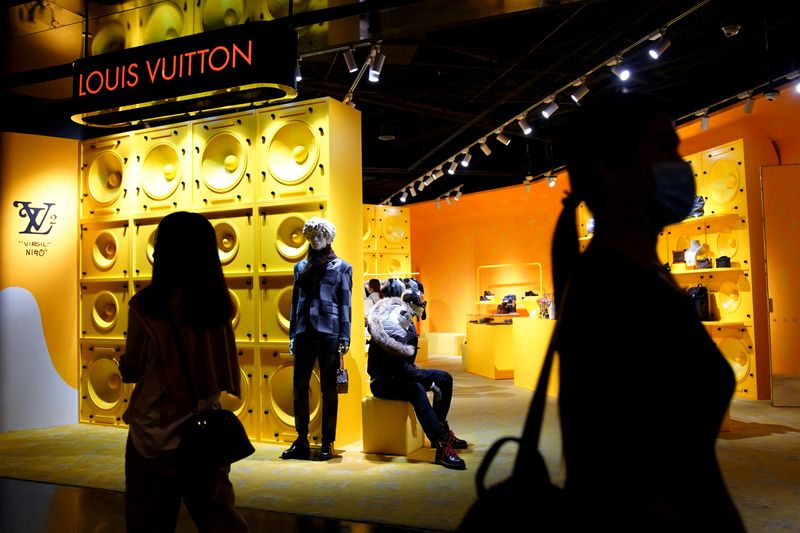By Mimosa Spencer
PARIS (Reuters) - Luxury shoppers are getting younger and younger, forming a group that's expected to buoy growth in the sector in the coming years with purchases being made from the age of 15, according to industry forecasts from consultancy Bain released Tuesday.
Concern has risen in recent months that appetite from financially stretched Gen Z consumers for "aspirational" purchases, from $300 bucket hats to $900 sneakers, could wane, as inflation and rising living costs hurt the incomes of young U.S. and European consumers while Chinese youth grapple with high levels of unemployment.
But third-quarter results showed European luxury goods companies continue to defy the overall gloomy economic climate, as consumers used savings and a pent-up shopping appetite to treat themselves and buy designer fashion as pandemic restrictions eased.
Younger consumers from Gen Z, or those born between 1996 and 2012, as well as the so-called Millennials born in the 1980s and early 1990s -- fuelled the luxury market's growth this year, according to the Bain report.
These generations began making luxury purchases between the age of 18 and 20 years old. Their heirs -- born in the late 1990s to mid 2020s -- will begin buying high-end goods even sooner, at the age of 15, Bain said.
"They have been exposed earlier to these kind of brands thanks to digital technologies and thanks to social media that has made them very knowledgeable luxury observers since they were kids," said Bain partner Federica Levato.
High-end labels, including megabrands like LVMH's Louis Vuitton and Kering (EPA:PRTP)'s Gucci, have cultivated young adults and 20-somethings in recent years, as seen in a wave of streetwear and gender-bending styles sweeping through runway shows.
Many are embracing the metaverse, like Balenciaga and Dior, to seed interest with teens and young adults, with affordable ways for them to kit out virtual identities on gaming platforms. As these younger generations enter the workforce, they will have even more cash for luxury products, said Levato.
Bain expects the industry's sales growth to hit 353 billion euros ($368 billion) this year, above the higher end of its previous estimate in June of 330 billion euros. That would represent growth of 15% from 2021 at constant exchange rates.

LVMH finance chief Jean-Jacques Guiony said last month the luxury industry was not a proxy for the general economy. He said that while it was not immune to recessions, "when it happens, it usually doesn't last very long."
($1 = 0.9601 euros)